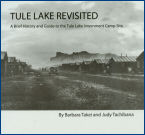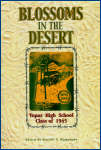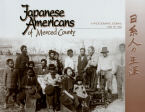|
The AACP Newsletter |
||
| Since 1970 | Asian American Curriculum Project, Inc. - Books for All Ages | July 2004 |
| Newsletter Home Page | Event Schedule | AsianAmericanBooks.com | Editor's Notes | Featured Books |
At a GlanceHamdi, Rasul, and PadillaA report on these latest Supreme Court decisions
Will Fear Deprive You of Your Civil Liberties or Has It Already?
Links
Scott Peterson Gets His Day in Court: Shouldn't Everyone?
|
|
||||||
|
Shouldn't Everyone? Editorial by Leonard Chan |
|
|
Did I get your attention? Seems like this is the biggest court case in the news these days. The local news in the San Francisco Bay Area can't keep from talking about it. The obvious conclusion is that you all are still following this case. So why not lead my editorial with a Scott Peterson headline? It was either this or "Space Aliens Advising Bush and Kerry." Now on to the real topic of my editorial, the subtitle "Shouldn't Everyone?" Here's what I believe will be discussed at schools 30 years from now - the court cases of Hamdi, Rasul, and Padilla. Perhaps it will never get the top billing of trials like a Brown v. The Board of Education or even a Korematsu v. United States. Maybe the Hamdi, Rasul, and Padilla court cases are fated to be seen only as footnote references in some future court cases. But in the grand scheme of things, these court cases have much much more importance than whatever happens to Scott Peterson. In my February 2004 newsletter article, I posed the provocative question, "Will the Supreme Court Legalize Governmental Kidnapping?" The simple answer is that they did not. While trying to find the right balance between security and civil liberties, the |
U.S. Supreme Court has definitively stated that our government cannot lock away people indefinitely without giving them any legal recourse. On the other hand they also reaffirmed and further defined the conditions by which the U.S. government can act to incarcerate individual during emergency situation and times such as now. Isn't the protection of our liberty more important than what happens in the Scott Peterson murder case? Shouldn't Asian Americans and all Americans be interested in following the debates, in government and our court system, regarding security and civil liberties issues? If you believe so, I ask you all to spend some time learning about the Hamdi, Rasul, Padilla, and other historic court cases. Print out some of the web pages that we link to in this newsletter and the next time you hear something on the Peterson trial, read a little bit about these cases. Perhaps we can never be 100% sure that acts similar to the Japanese American World War II incarceration will not happen again, but these court cases have given more ammunition to the defenders of our civil liberties. Scott Peterson is getting his day in court, perhaps everyone locked away by our government will too. |
The following books are discounted for subscribers to our newsletter. The discounts on these books end August 15, 2004. | |

|
Tule Lake Revisited
By Barbara Takei and Judy Tachibana |

|
Blossoms in the Desert
Edited by Darrell Y. Hamamoto |

|
Japanese Americans of Merced County
By Japanese Americans of Merced County Committee
|

|
Keep it Going Pass it On
By The Manzanar Committee |

|
Music for AliceBy Allen Say2004, 32 pages, Hardback. A Japanese American farmer recounts her agricultural successes and setbacks and her enduring love of dance. Based on the true life store of Alice Sumida, who with her husband Mark established the largest gladiola bulb farm in the country during the last half of the twentieth century.
View Additional Information
|
Copyright © 2004 by Asian American Curriculum Project, Inc. (a non-profit organization since 1970)
Visit our website at AsianAmericanBooks.com
To unsubscribe simply reply to this email and type "REMOVE" in the subject line.